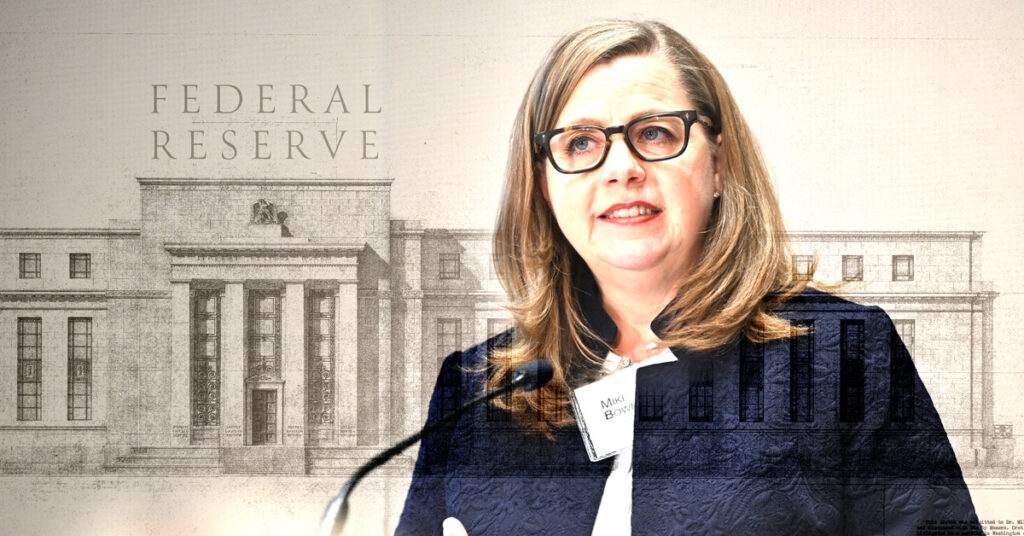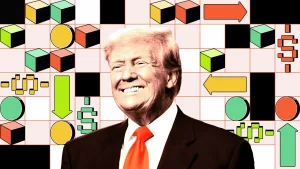‘Change Is Coming’: Fed’s Michelle Bowman Opens Door to Crypto Integration

Key Points
- Bowman warns that banks risk becoming irrelevant if they fail to adopt cryptocurrency and artificial intelligence
- Regulators are crafting a digital asset policy framework aimed at expanding access to banking services
- The Federal Reserve has removed reputational risk penalties to strengthen ties between banks and digital asset firms
Michelle Bowman Warns Banks Risk Irrelevance Without Embracing Innovation
Federal Reserve Governor Michelle Bowman cautioned that banks could become irrelevant if they resist adopting technologies like blockchain, artificial intelligence (AI), and cryptocurrency. Speaking at the Wyoming Blockchain Symposium, she emphasized that regulators are actively developing a digital asset framework to expand access to banking and eliminate outdated supervisory barriers.
Urging Support for Innovation in Financial Services
Bowman stressed the importance of allowing innovation to flourish within the financial sector. She noted that regulatory bodies are already taking steps to integrate digital assets and blockchain technology into the banking system. These efforts, she said, aim to improve financial efficiency, solve longstanding problems, and remove obstacles that have hindered collaboration between banks and technology innovators.
A Warning Against Regulatory Caution
Bowman warned that an overly cautious regulatory stance could sideline traditional banks as consumers and businesses increasingly turn to faster, more cost-effective alternatives. She said the Federal Reserve is working to shift its internal culture toward openness, and emphasized that outdated regulatory frameworks should not obstruct the development of new financial products and services.
Tokenization and Stablecoins: New Avenues for Banks
Bowman highlighted the transformative potential of tokenization, stating that tokenized assets could streamline ownership transfers, cut costs, and expand access to capital markets. She argued that even smaller, community banks could benefit from near real-time settlement enabled by tokenized systems.
She also addressed the growing relevance of stablecoins, especially following the passage of the GENIUS Act. Bowman suggested that stablecoins could enhance the payment infrastructure available to banks. However, she stressed the need for clear and fair regulations that are proportionate to actual risks posed by these digital assets.
Balanced Oversight for AI and Policy Shifts at the Fed
In addition to blockchain and crypto, Bowman called for a balanced regulatory approach to artificial intelligence. She acknowledged AI’s potential to improve fraud detection, risk management, and customer service in banking, while also noting the new risks it introduces. Bowman referenced a recent conversation with OpenAI CEO Sam Altman, underscoring the need for regulators to stay engaged as AI evolves.
Bowman also announced a significant policy change regarding “reputational risk.” She confirmed that the Federal Reserve will no longer permit examiners to penalize banks for serving legally operating businesses based on subjective reputational concerns. This change is expected to facilitate stronger relationships between banks and digital asset firms.
Call for Ongoing Collaboration
Bowman concluded by urging continued collaboration between regulators, banks, and technology developers. She stressed that fostering open dialogue is essential to ensuring innovation supports and strengthens the U.S. financial system.













